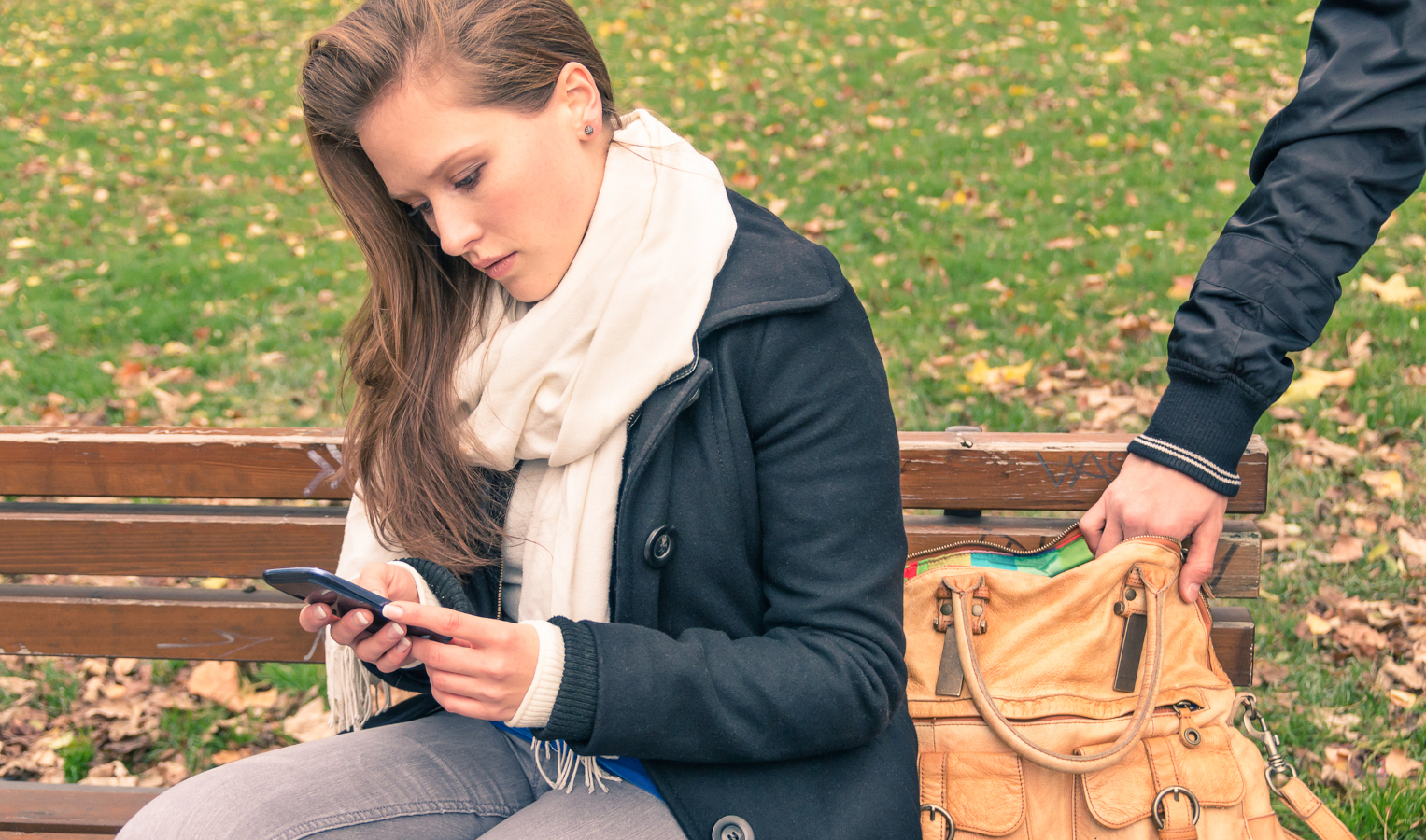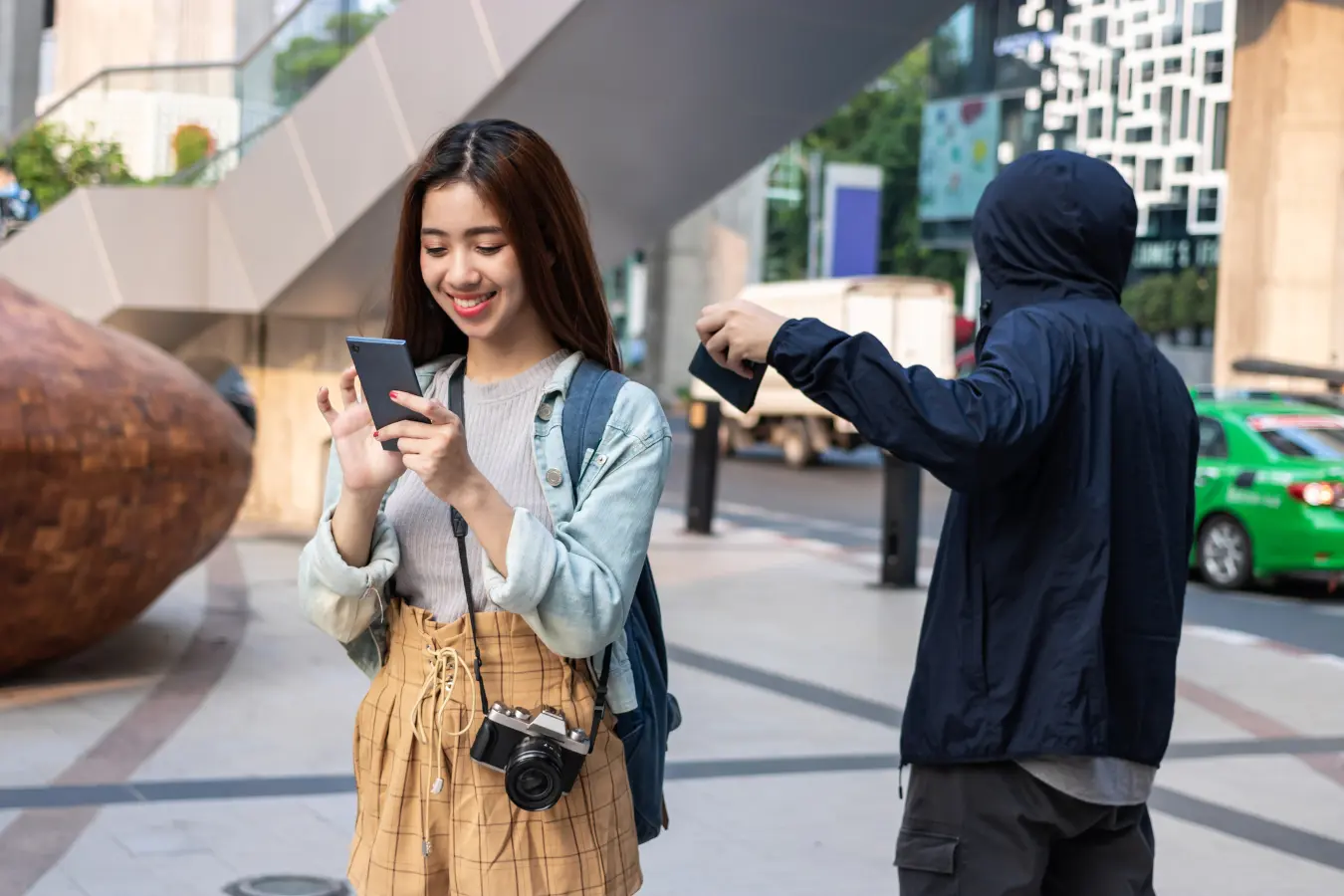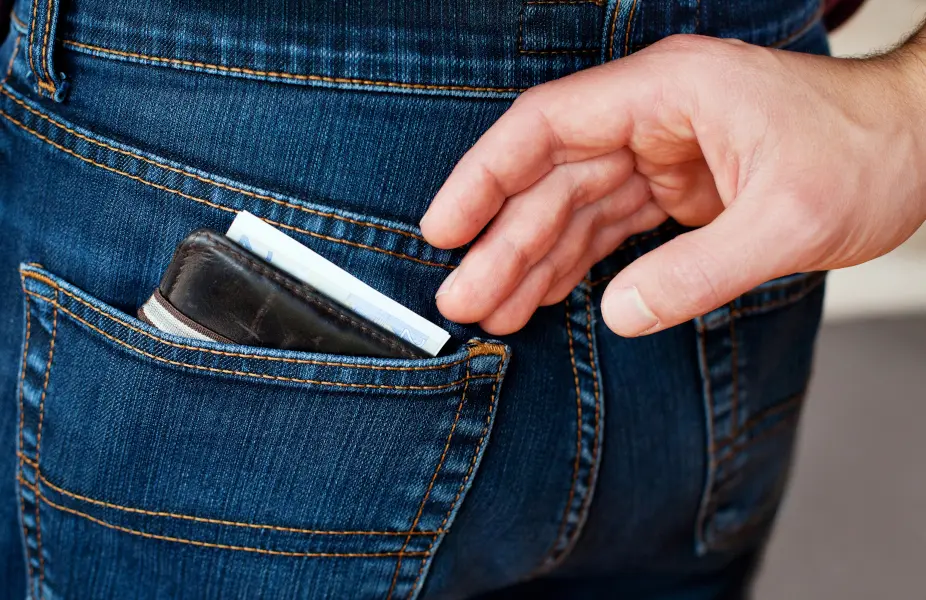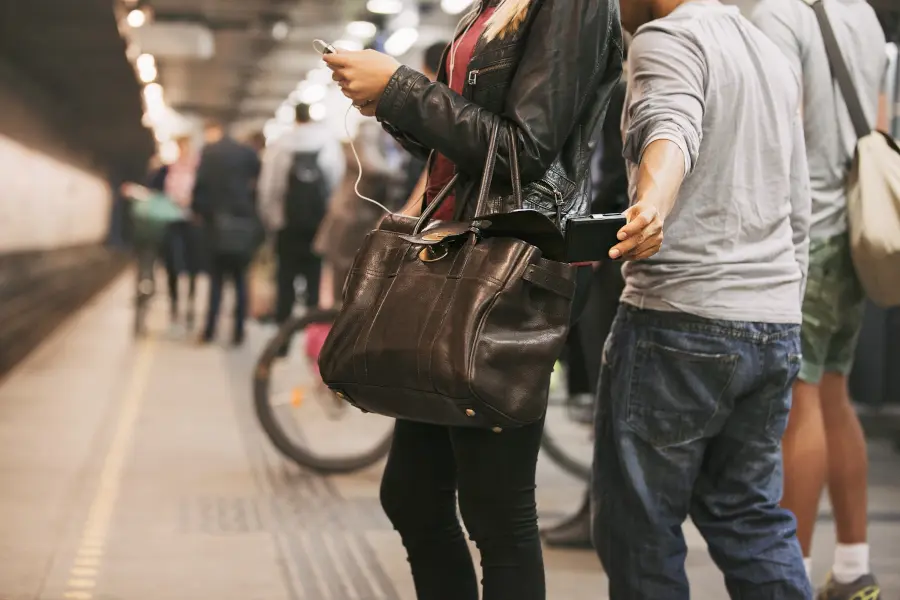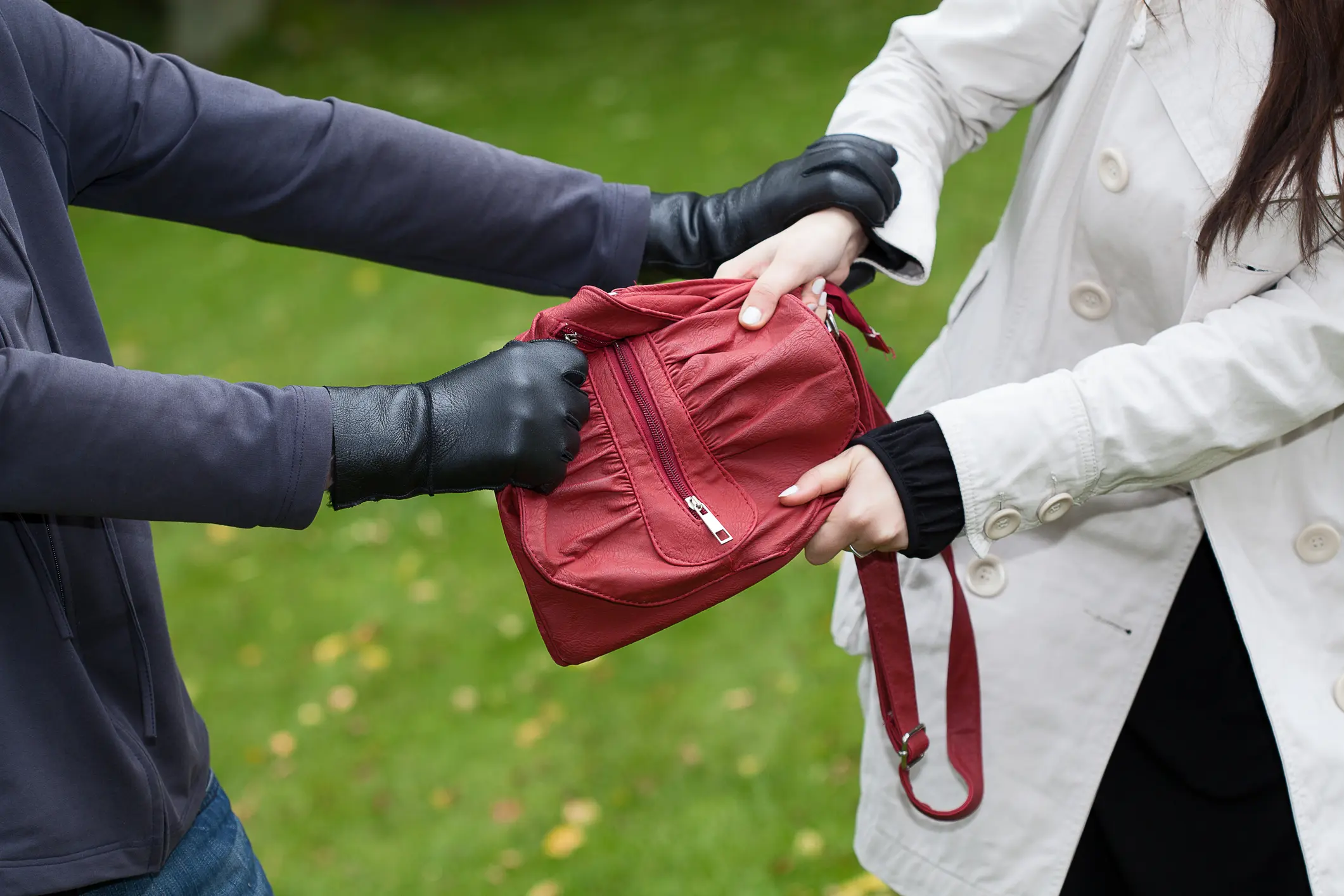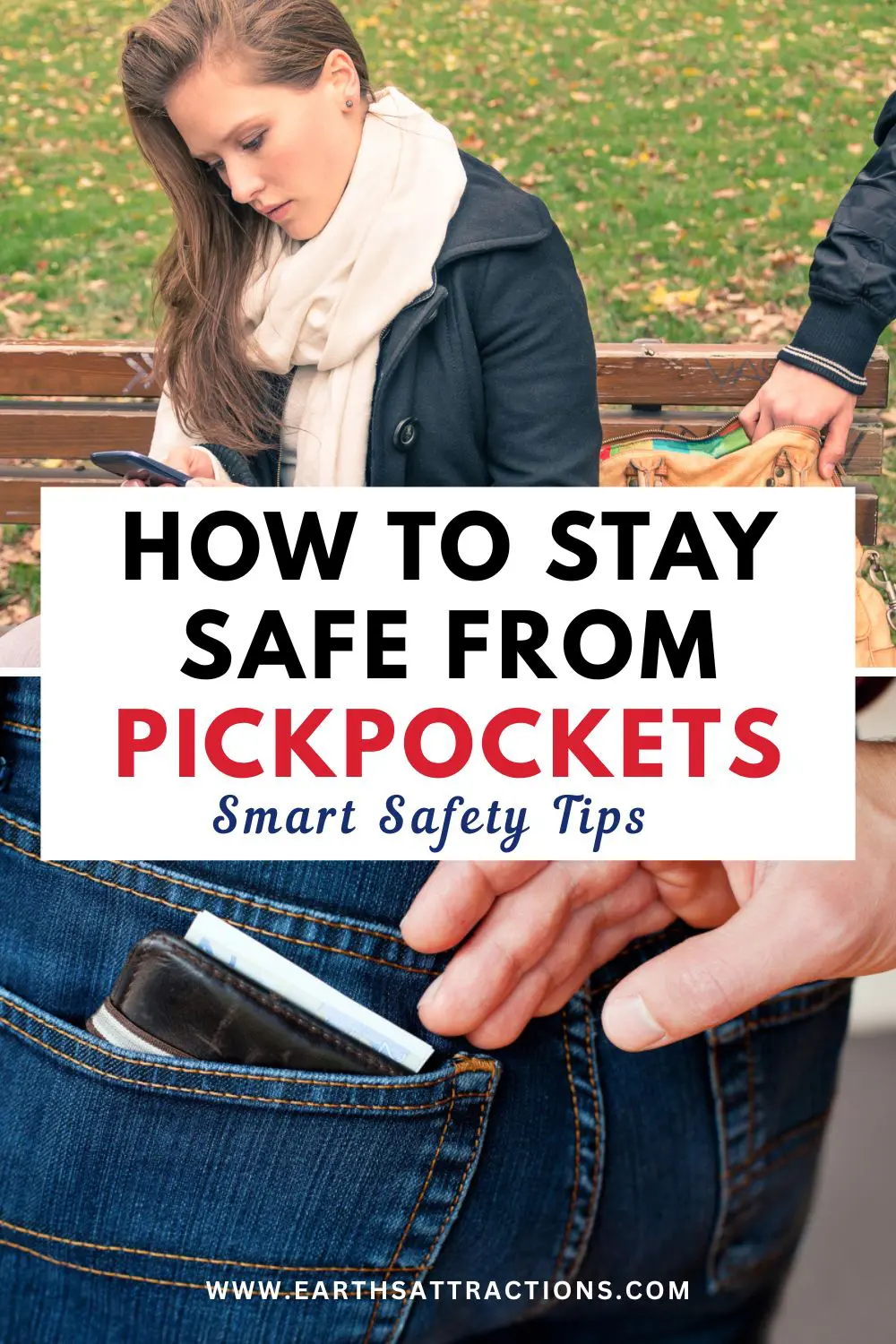Imagine this: you’re in high school, heading to the small shop in front of the school, ready to buy lunch – and then you realize your wallet isn’t where it should be. You check every pocket, every corner of your backpack, hoping you just misplaced it. Then you notice the small, clean cut inside the bag – and it hits you. You took a crowded bus that morning.
Someone had quietly slipped your wallet out without you even feeling it. Yes, this happened to me. It’s one of those moments that makes your heart race and your mind spin – how could this happen so fast, and without me noticing? That day changed how I looked at safety forever. My mom had similar (and worse) experiences.
ID 35632162 ©Mirko Vitali | Dreamstime.com
I wish I didn’t have firsthand experience with this, but unfortunately, I do. Years ago, I had my wallet stolen – not abroad, but in my own country. That moment of shock, disbelief, and frustration is something I’ll never forget.
Since then, I’ve explored countless cities – from Paris and Vienna to smaller European towns and beyond – and I’ve learned how to stay safe without becoming paranoid.
I’ve also spoken with other travelers, read city advisories, and tested dozens of anti-theft accessories – from crossbody bags to RFID wallets – to understand what really works in crowded tourist spots.
The truth is that pickpockets are everywhere, but so are smart travelers. With the right awareness and habits, you can keep your belongings (and peace of mind) safe wherever you go.
This article shares practical, experience-based tips on how to avoid pickpockets while traveling, including what I’ve learned the hard way, plus additional insights gathered over years of observing, researching, and traveling.
Why Pickpocketing Is Still a Problem
You’d think that with modern technology, travel apps, and security cameras everywhere, pickpocketing would be rare by now. Unfortunately, it’s not.
Pickpockets thrive in crowded, distracted environments – places where tourists are focused on taking photos, checking maps, or admiring the view. From the metro in Paris to the streets of Barcelona, from busy bazaars to local trams, these thieves know exactly how to blend in.
Authorities in many cities constantly issue warnings. In Vienna, for example, bright yellow signs remind commuters to stay alert. In Paris, audio announcements at landmarks warn visitors to watch their belongings. And yes, even in world-class museums like the Louvre, staff have gone on strike over the constant pickpocket problem.
The reality is that pickpockets move fast, act discreetly, and often work in teams. But the good news is that simple precautions go a long way – and that’s exactly what this guide is about.
How to Avoid Pickpockets While Traveling: Real-World Tips
1. Keep Your Bag in Sight – Always
ID 178257630 ©Anan Sudsaithong | Dreamstime.com
One of the simplest yet most effective rules: never let your bag out of your sight.
That means:
- Don’t hang your purse or backpack on the back of a chair.
- Don’t set your bag beside you on public transport unless you’re watching it.
- Don’t walk through crowded areas with a bag dangling behind you.
Wear a crossbody bag that stays close to your front. When sitting, hold it on your lap or keep the strap looped around your arm. If you’re wearing a backpack, remove it on the subway or bus and hold it in front of you (it is anyway the polite way to handle it).
When visiting major tourist attractions – think the Eiffel Tower, Trevi Fountain, or La Rambla – always keep your bag zipped and in front (I sometimes keep it on my side, across the body so it cannot be snatched – and I have one hand on it). These are among the top pickpocket hotspots in Europe.
Over the years, I’ve also noticed how many travelers unknowingly make themselves easy targets. I’ve seen people in big museums – in Paris, Vienna, and many other cities – walking with their backpacks wide open or leaving their purses unattended on benches while taking photos.
It happens a lot when people travel in groups; they start chatting, laughing, and forget to keep an eye on their things. Unfortunately, that kind of carelessness is exactly what pickpockets look for.
When taking photos, position your bag against your body. Wait for a moment when the crowds thin before snapping pictures. It may sound inconvenient, but soon it becomes second nature.
2. Carry Only One Bag
Traveling light is not only freeing – it’s safer. The fewer items you carry, the less you have to protect.
When I travel alone, I usually fit everything essential into one compact camera bag: cash, a card, ID, phone, map, tissues, and a tiny umbrella if needed. I even skip the wallet sometimes to save space.
This minimalist approach keeps things simple. You know exactly where everything is and can focus on your surroundings instead of juggling multiple bags.
If you end up shopping and have to carry an extra bag, stay alert – especially on your way back to your hotel when you’re tired and less cautious.
When I travel with family, we usually have a small backpack – a bottle of water, some snacks, a power bank, etc.- and I use my phone for almost everything I need (to pay, Google Translate, maps, etc.)
If you’re traveling with kids, it’s even more important to travel light – between snacks, maps, and phones, distractions multiply fast, and that’s when thieves act.
3. Consider a Money Belt or Hidden Pouch
ID 61359452 ©Anyaberkut | Dreamstime.com
Maybe avoid putting your wallet or your phone in your back pocket.
Money belts and hidden pouches aren’t glamorous, but they work. Today’s versions are lightweight, slim, and made from soft fabrics that don’t irritate your skin.
Use them to store your passport, backup cards, and emergency cash. Just resist the urge to touch them constantly – that’s like pointing out your valuables to thieves.
Some travelers prefer neck pouches or hidden pockets sewn inside jackets or pants. Choose what feels most natural, and practice accessing your money discreetly before your trip.
You can also find money belts with RFID protection, which block electronic theft from contactless card scanners – a simple way to prevent digital pickpocketing.
4. Get Organized – Know Exactly Where Everything Is
A well-organized bag is my secret weapon. When you can grab what you need quickly, you don’t have to dig through your things and expose valuables.
Try this setup:
- Cash and coins in one small pocket.
- Cards in a zipped compartment.
- Passport and ID in an inner pocket.
- Phone in an outer pocket you can access easily, but still see.
You’ll move more confidently, attract less attention, and avoid that stressful “Where’s my wallet?!” panic.
This system works whether you’re visiting a museum, shopping in a market, or boarding a flight – being organized means being one step ahead of pickpockets.
5. Avoid Rush Hours and Crowded Areas When Possible
ID 34556257 ©Ammentorp | Dreamstime.com
Crowds create perfect cover for pickpockets. Whenever possible, travel outside local rush hours. In cities like Rome, Paris, or Lisbon, metro lines are busiest between 8–9 AM and 5–6 PM – classic pickpocket hours.
If museums open at 10 AM, for example, take the metro at 9:30, when commuters are already at work. You’ll enjoy fewer crowds and lower risk.
In busy places, be alert if someone bumps into you, drops something nearby, or suddenly asks for help. Many thieves work in pairs – one distracts while the other acts.
6. Make Copies of Important Documents
Before you even board your flight, make photocopies or digital backups of all important documents: passport, ID, insurance, and travel cards.
Leave one printed copy in your hotel room and upload scanned versions to a password-protected cloud account like Google Drive or Dropbox.
Also, note down emergency contacts: your bank, local embassy, and insurance hotline. Save them both in your phone and on paper.
And one extra tip: If you use cloud storage, create a hidden folder name (not ‘passport’ or ‘documents’) to make it harder to find if your account is ever compromised.
7. Recognize Common Pickpocket Scams
I cannot stress how important this is. Pickpockets rely on distraction, creativity, and psychology. Here are a few common scams:
- The “help me” trap: Someone asks you to fix something or sign a petition while their partner takes your wallet.
- The “accidental spill” trick: You’re “accidentally” splashed with something, and a “helpful” stranger wipes it off – while taking your bag.
- The fake police officer: Someone claims to be a police officer and asks to see your money “to check for counterfeits.” Real officers never do this.
- The overly friendly stranger: They hug, high-five, or place a bracelet on your wrist – and take your watch or wallet in the process.
- The sudden commotion: During street performances or protests, pickpockets use chaos as cover.
If a situation feels off, it probably is. Smile, decline politely, and walk away.
In some destinations, scammers also use fake QR codes or donation boxes – if you’re asked to scan something or donate cash in a busy area, walk away.
One extra tip for you: Before your trip – anywhere! – search online and see the common scams in that area (find updated articles).
Why?
Because new scams appear from time to time – and it is better to be prepared.
8. Dress Simply and Blend In
ID 43903686 ©Markus Schieder | Dreamstime.com
You don’t have to hide your personality, but avoid flashy displays of wealth. Expensive watches, jewelry, or luxury handbags send the wrong signal.
Try to blend in with locals. Choose comfortable, neutral clothes and act confidently. Even something as simple as knowing how to pronounce your destination or using public transport smoothly can make you look less like a target.
Also, avoid checking your wallet or bag too often in public – it signals where your valuables are.
9. Stay Safe at Night
Even in the most beautiful cities, nighttime can bring more risk. Always research which areas are safe for evening walks.
When going out, take only what you need: one card, a bit of cash, and your phone. Leave passports and backups in the hotel safe. Stick to well-lit, populated areas and use rideshares or official taxis after dark.
Trust your instincts – if a place feels unsafe, it probably is.
If you’re a solo traveler – especially a woman – consider sharing your location with a trusted friend through your phone during night outings.
10. Choose Your Travel Companion Wisely
Traveling with someone else can make you safer – or more distracted. When you travel with friends, you tend to feel comfortable, chat more, and pay less attention to your surroundings.
Make it a shared effort to stay alert. Remind each other to zip bags, secure phones, and stay aware, especially in crowds.
11. Learn from the Locals
Locals often know where pickpockets strike and how to avoid them. Notice how they handle their bags in public or which side of the metro they prefer standing on.
Don’t hesitate to ask hotel staff or guides if there are areas to avoid or special precautions to take. Most are happy to share practical advice.
In Japan or Scandinavia, you’ll notice locals are relaxed with their belongings; in Southern Europe, more cautious. Observing these local habits helps you adapt naturally.
12. Don’t Let Fear Ruin the Fun
Yes, pickpocketing is common – but don’t let fear dominate your trip.
The goal isn’t to be paranoid; it’s to be calmly aware. Enjoy your surroundings, take photos, and engage with people. Awareness and confidence are far better defenses than anxiety.
I’ve learned that being cautious doesn’t mean being closed off. It means traveling smart.
13. Protect Your Digital Data
Modern travel safety isn’t just about wallets and purses anymore – it’s also about digital pickpocketing.
- Use RFID-blocking wallets or sleeves to prevent contactless theft.
- Turn off NFC and Bluetooth when not in use.
- Avoid connecting to unsecured public Wi-Fi networks; if necessary, use a VPN.
- Don’t overshare on social media – especially your real-time location. Wait until you’ve left a place before posting photos.
Your digital footprint is valuable, so protect it as carefully as your cash.
Also, beware of AI-generated scam messages – criminals increasingly use realistic fake alerts or ‘lost phone’ texts to trick travelers into sharing payment info.
14. Before You Leave Home: A Quick Travel Safety Checklist
Preparation is your first line of defense. Before your trip:
- Scan and upload digital copies of your documents.
- Inform your bank of travel dates to avoid blocked cards.
- Enable two-factor authentication on important accounts.
- Split your money between two cards and keep them separate.
- Make a note of emergency numbers (bank, embassy, insurance).
- Double-check your bag’s straps and zippers.
A few minutes of preparation can save hours of stress later.
15. Keep Your Belongings Safe in Hotels
Even in reputable hotels, it’s smart to be cautious.
- Use the room safe for passports and extra cash.
- In hostels, bring a small padlock for lockers.
- Don’t leave valuables near open windows or balconies.
- Keep your luggage zipped and, if possible, secured with a small travel lock.
- If you’re sharing a room, keep essentials with you in a small day bag whenever you go out.
If you’re staying in an Airbnb or rental apartment, check that windows and doors lock properly – and don’t leave valuables near entrances.
16. Confidence Is a Deterrent
Pickpockets target the unaware and hesitant. The simple act of walking confidently – looking around occasionally, making eye contact (NOT staring), and carrying yourself with purpose – can make you look like a harder target.
I’ve seen this in action countless times: tourists glued to their phones are magnets for theft, while those who appear alert are usually left alone.
Confidence is a form of protection – no special gear required.
17. Pickpocket Hotspots Around the World
Certain cities are notorious for pickpocket activity – mostly because they attract millions of tourists each year.
- Europe: Paris, Rome, Barcelona, Prague, Athens, and Budapest are known hotspots, especially in metros, plazas, and near landmarks.
- Asia: Bangkok, Hanoi, and Manila have their fair share, especially in markets and tourist streets.
- South America: Beware in crowded areas of Rio de Janeiro, Buenos Aires, and Lima.
This doesn’t mean you should avoid these destinations (I LOVE big cities!) – just that awareness is key. Each of them offers incredible experiences worth having.
18. High-Distraction Moments to Watch For
Pickpockets usually act when you’re least focused. Be especially careful during:
- Boarding or exiting buses and trains.
- Street shows or protests.
- Buying tickets from machines.
- Checking your phone or camera in a crowd.
- Dining at outdoor cafés with your bag on the chair.
Make it a habit to do a quick “bag check” – just a glance or touch – before moving on.
19. What to Do If You Catch a Pickpocket or Get Robbed
ID 34641149 ©Bialasiewicz | Dreamstime.com
If you catch someone trying to steal from you:
- Don’t confront them physically. It might be a first instinct, but I would advise against confronting them.
- Shout or call for help – that draws attention and scares them off.
- Notify police or security nearby.
Also, keep your police report – most travel insurance companies require it for reimbursement, and it helps track repeat offenders in tourist databases.
If you discover your belongings are gone:
- Stay calm. I know it is not easy, but if you panic, things go horribly wrong!
- Report it immediately to the local police – you’ll need a report for insurance.
- Cancel cards or freeze them via your banking app.
- Contact your embassy if your passport was stolen.
- Use your copies or digital backups to speed up replacements.
It’s frustrating, but you can recover from it – and it doesn’t have to ruin your trip.
FAQs: Travelers’ Most Common Pickpocket Questions
Q: Are pickpockets violent?
Generally, no. They rely on stealth, not confrontation.
Q: What’s the safest way to carry money abroad?
Split your cash between a hidden pouch and a small “daily” wallet.
Q: Should I bring my passport with me every day?
Only when necessary – keep it locked in your hotel safe, otherwise.
Q: Where are pickpockets most active?
Public transport, crowded attractions, street performances, and night markets.
Q: What’s the best anti-theft bag?
A crossbody or anti-theft backpack with lockable zippers and slash-resistant straps.
Q: What should I do if my phone gets stolen while traveling?
First, use “Find My Phone” (Apple) or “Find My Device” (Android) to locate or lock it remotely (make sure this is activated prior to leaving on your trip). Then report the theft to local authorities and your service provider immediately.
Stay Smart, Stay Free
Having been a pickpocket victim once, I learned the hard way how quickly things can go wrong – and how easily they can be prevented. Since then, I’ve visited dozens of countries, used countless metros, and spent hours in packed attractions without a single incident.
The secret? A mix of awareness, preparation, and calm confidence.
Pickpockets exist, but they don’t have to shape your travel experience. Stay alert, stay organized, and travel light – but never forget to enjoy yourself.
Because the best souvenir isn’t the stuff you bring home – it’s the memories you make along the way.
Staying safe from pickpockets isn’t about luck – it’s about smart habits, awareness, and preparation that let you enjoy the world freely, one trip at a time.

